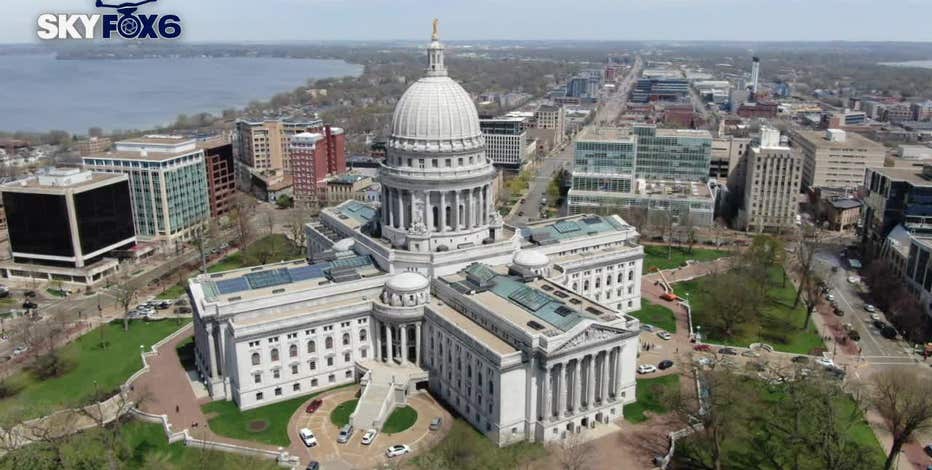This browser does not support the Video element.
Wisconsin shared revenue: Republicans 'done negotiating,' Evers optimistic
Wisconsin Assembly Speaker Robin Vos said Republicans are "done negotiating" shared revenue. Gov. Tony Evers is optimistic.
MADISON, Wis. - As Wisconsin lawmakers negotiate how to spend tax dollars, Assembly Republicans plan a vote on a bill to send every city, village and town more shared revenue.
Democratic Gov. Tony Evers has threatened to veto that bill, saying it does not give enough, but said he is optimistic they will reach bipartisan compromise. He also said conversations will take place in the weeks ahead.
Republicans recessed Wednesday, May 17 to huddle behind closed doors. Their original plan would boost shared revenue by at least 10% for municipalities. Now, they say the plan will give a minimum 15% boost – the extra money would have to be used on police, fire, EMS, public works or transportation.
SIGN UP TODAY: Get daily headlines, breaking news emails from FOX6 News
"We are done negotiating. We are not going to take changes, we are not going to change the bill substantially," said Assembly Speaker Robin Vos (R-Rochester). "What we have before us is the deal we'll send to the State Senate, and we hope Gov. Evers agrees it's worth signing."
"It sounds to me like there’s a pretty significant gap here," said State Rep. Ryan Clancy (D-Milwaukee). "Essentially, what I think they are doing now is polishing a turd. We need it not to be a turd."

Wisconsin Capitol, Madison
The GOP plan will also allow Milwaukee County voters to weigh in on a sales tax referendum; the city of Milwaukee could add 2%, and the county could add 0.375%. Vos said in negotiations they were willing to skip the referendum if it was a unanimous vote of the Milwaukee Common Council and Milwaukee County Board of Supervisors, but said the city and county would not agree to that.
Milwaukee leaders and the Wisconsin Policy Forum said, without extra help, the city's growing pension obligation and static shared revenue would lead to a fiscal crisis and major cuts in a few years.
FREE DOWNLOAD: Get breaking news alerts in the FOX6 News app for iOS or Android.
The Assembly amendment would allow health officials to close businesses for up to 30 days, with the local governing body able to extend that once for another 30 days.
The amendment also still bans local advisory referenda questions on everything except those for certain projects that would be funded with property tax money. The bill would not allow questions on hot-button issues like whether voters support abortion rights or legalizing marijuana.
It would also mandate that local governments approve projects under the state’s land stewardship program that are north of U.S. Highway 8, which runs across roughly the northernmost quarter of the state. Republicans have long raised concerns about such projects that protect the land from future development.
The shared revenue program to fund local governments, created in 1911, has remained nearly unchanged for almost 30 years, despite overall growth in tax revenues. Shared revenue for counties and municipalities was cut in 2004, 2010 and 2012 and since then has been relatively flat.
The Associated Press contributed to this report.
